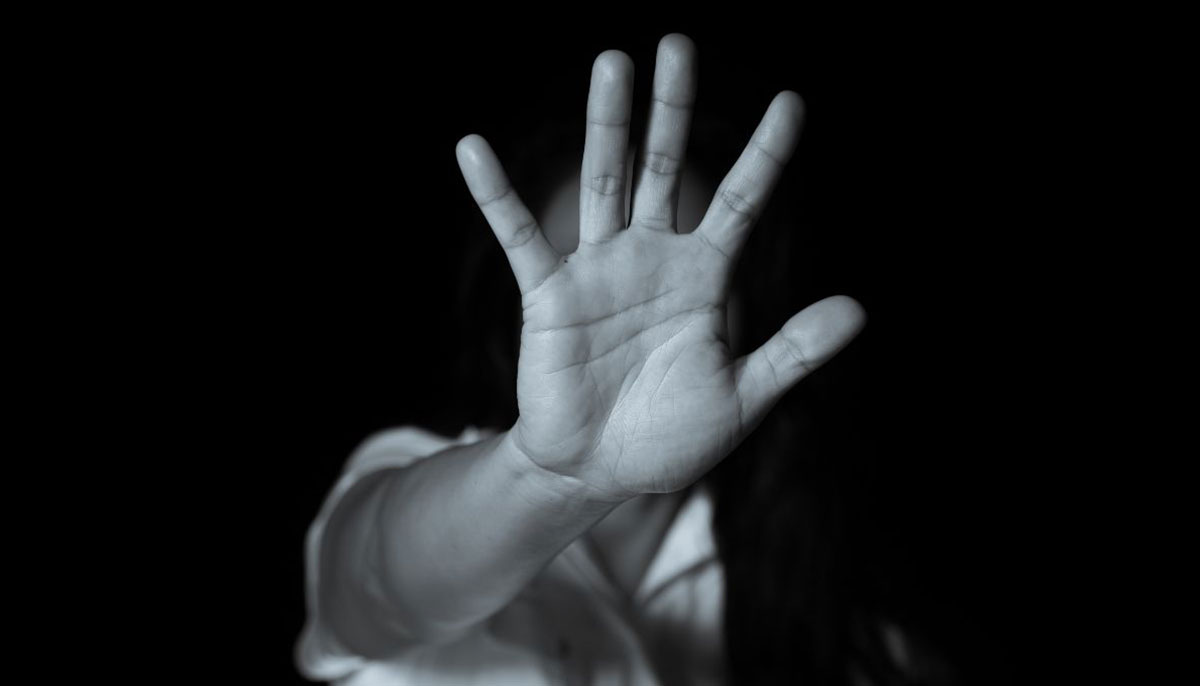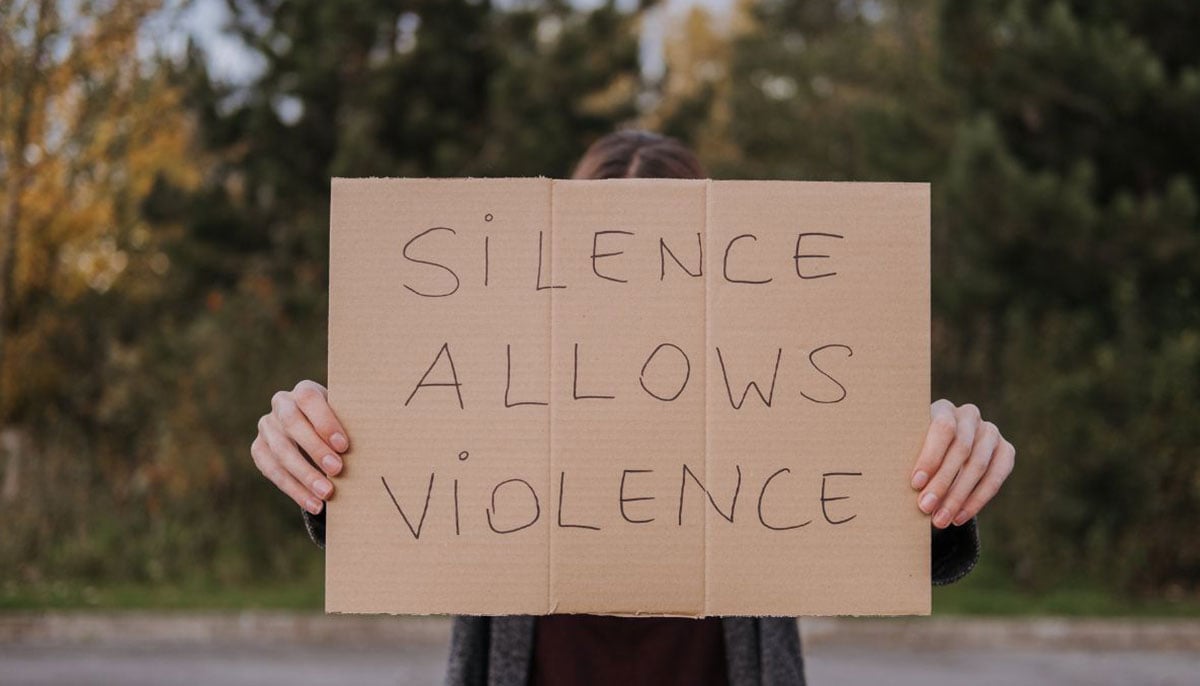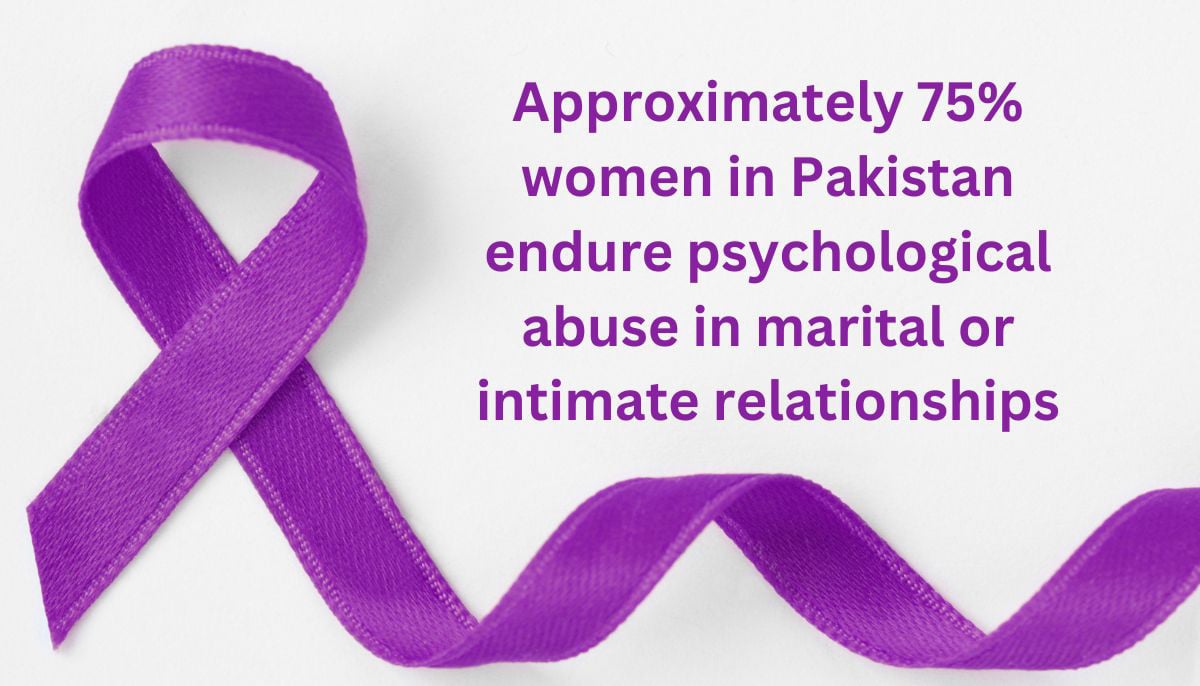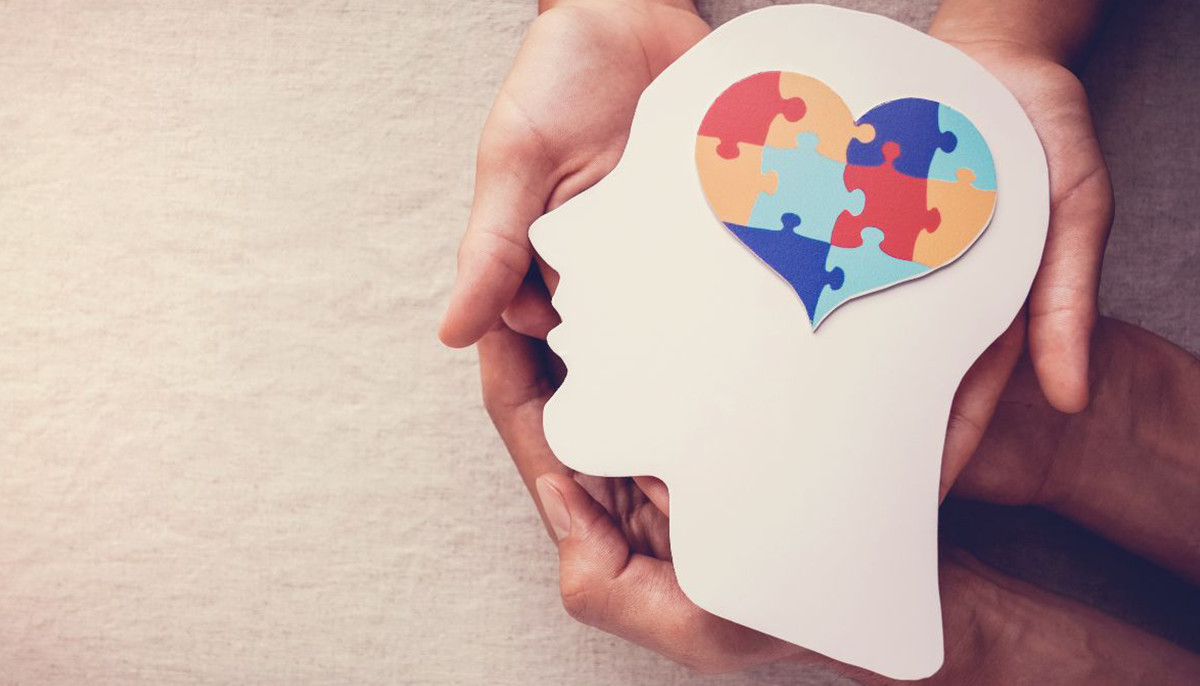Combating intimate mental abuse: Story of unseen scars
The prevalence of mental abuse in Pakistan is alarming, with approximately 75% of women enduring psychological abuse in marital or intimate relationships

In the hushed confines of a bustling law office, Amrita sits across her attorney, her eyes betraying a tumultuous mix of emotions — fear, confusion, and smouldering anger. The weight of her decision hangs palpably in the air as her lawyer probes gently, yet persistently, into the depths of her anguish.
"Could the slap alone be the reason? What's the underlying issue? Family problems?" her lawyer inquires.
Amrita's response comes in a resigned whisper, "No."
As the line of questioning delves deeper, attempting to untangle the complex web of emotions and experiences that led Amrita to seek divorce from her husband, a stark reality emerges. Each hesitant reply paints a poignant picture of a woman ensnared in a cycle of abuse, struggling to find her voice in a society often indifferent to her plight.
This scene, reminiscent of a gripping courtroom drama, finds its roots not in fiction but in the raw emotion portrayed in the Indian film "Thappad," a narrative that resonates deeply with countless Pakistani women who have endured physical violence at the hands of their intimate partners.

In a society where weddings are celebrated with opulence and grandeur, and the sanctity of marriage often supersedes the well-being of its participants, divorce is often viewed as a greater taboo than enduring abuse. From a young age, girls are groomed to aspire to the role of devoted wives, taught to prioritise the preservation of marriage above their happiness and safety.
For many women like Amrita, trapped in loveless, abusive, or toxic marriages, divorce seems an unattainable dream, overshadowed by societal expectations and cultural norms. In a country where physical abuse by intimate partners is frequently dismissed or trivialised, the victims of mental and emotional abuse remain invisible, their pleas for help drowned out by the deafening silence of societal indifference.
Hania's journey from a radiant bride to a shattered soul serves as a chilling testament to the insidious nature of emotional abuse. Her marriage, once a fairy-tale romance, swiftly descended into a nightmare of silence, aggression, and psychological manipulation.
Recalling the honeymoon period that swiftly gave way to turmoil, Hania vividly remembers the stark transition. "After fifteen days, he became silent. Absolutely silent," she recounts, pinpointing the moment her marital bliss began to unravel.
As silence gave way to aggression and aggression to threats of physical violence, Hania found herself navigating a minefield of her husband's unpredictable moods. With each passing day, her self-esteem eroded, her autonomy stripped away by fear.
Yet, Hania's ordeal is not an anomaly. Across Pakistan, countless women silently endure the torment of emotional abuse, their suffering concealed behind closed doors and carefully crafted facades of marital bliss. In a society where the rights of husbands outweigh the responsibilities of wives, mental abuse often goes unnoticed and unacknowledged, perpetuating a cycle of suffering and silence.

For Anum, a similar realisation dawned as she began to recognise the toll of mental abuse on her physical well-being. Despite being in a long-distance relationship, the effects of manipulation, isolation, and belittlement manifested in subtle yet alarming ways. Anum recalls, "I started losing weight and fell ill frequently, eventually reaching a point where I could no longer perform my job effectively."
“On the 4th of July, I received an invitation to speak at my alma mater, celebrating my achievements in digital marketing and research. It was a pivotal moment in my career. However, that morning, my husband's erratic behavior threatened to derail my plans.
"Despite this, I gathered my composure and delivered a speech that surpassed my expectations. Yet, when I shared the highlights with my husband, his initial approval quickly turned into criticism and ridicule, culminating in him blocking me from all communication channels. This incident marked a turning point in our relationship, forcing me to reevaluate the dynamics at play,” Anum said.
As both women navigated their respective challenges, they found solace in shared experiences. Anum's journey led her to connect with other women facing similar struggles on social media. Despite familial pressure to maintain the relationship, she embarked on a path of self-discovery and healing through therapy and introspection.
Prevalence of mental abuse in intimate relationships
Dr Esha Usmani, a seasoned psychologist, sheds light on the insidious nature of emotional abuse within intimate relationships. She emphasises that behaviours like sarcasm, constant criticism, and belittlement constitute forms of mental abuse, often overlooked but profoundly damaging.
The prevalence of mental abuse in Pakistan is alarming, with approximately 75% of women enduring psychological abuse in marital or intimate relationships. Despite legislative efforts, such as the Mental Health Act of 2013, practical implementation remains inadequate, leaving victims vulnerable and unsupported.
While mental abuse between intimate partners can happen across the gender spectrum, women are more likely to be at its receiving end.
“The gender ratio of mental abuse among intimate partner violence is 1:9 where one is men. Men often resort to taking revenge, cheating or physically distancing themselves from their wives if they are the victims of mental abuse at their hands whereas women do not have the option to this route. They are culturally deemed as homemakers and healers, even at the cost of their well-being,” points Dr Usmani.

According to HRCP spokesperson Nida Tanveer, approximately 75% of women in marital or intimate relationships endure psychological abuse, with rural areas experiencing even higher rates.
"Despite the Mental Health Act of 2013, its practical implementation is lacking, as the state does not prioritise it as a form of violence.”
Speaking about the steps needed to curb it, Nida says, “Raising awareness about mental abuse is essential, educating the public that it is a medical condition requiring attention and therapy, similar to other health conditions.”
Research and awareness regarding mental health in Pakistan are as negligible as one can imagine. While there is a paucity of local research, estimates show that approximately one in four Pakistanis over the age of 18 will be affected by a mental health condition at some point in their lives, of which over 80% will not be able to access mental health support.
While men and women are likely to suffer from mental health-related abnormalities, the chances of women being the prime sufferers are more as men retort to retaliatory tactics if they are at the risk or the receiving end of psychological or emotional abuse at the hands of their partners.
Combining this high rate of mental health-related issues with the dearth of mental health professionals in the country, one can easily come up with an alarming figure. Thus, Pakistan is locked in this vicious cycle of high levels of mental illness with a low figure of mental healthcare professionals and thus an increase in the number of people remaining unaware and untreated for their mental illnesses.
Impact of undiagnosed mental illnesses
According to researchers, mental health issues like schizophrenia, bipolar disorder, borderline personality disorder or narcissism hurt relationships as they put a strain on communication and intimacy. This strain is felt in an amplified manner by partners of people suffering from such mental illness, especially if it goes ignored and undiagnosed.
Conceptualise this phenomenon in a society like ours where mental health-related issues and psychological/psychiatric visitations are viewed with similar disgust and scorn as divorce and you’ll get a rough picture of the amount of pressure people are likely to suffer from such marriages.

“I knew my husband was a borderline narcissist. The way his mother coddled and catered for him even after our marriage and his unhinged inability to receive and understand 'no' with grace was just some indicative signs,” says Anum, who now after consistent therapy and research finds herself well-versed in the topic.
Anum now works with other survivors of mental abuse victims and helps in raising awareness about narcissism and depression. However, her personal and volunteering experience has taught her the limitations of this society.
"I have a friend who married young to the person she loved. But after four years of suffering emotional abuse from her husband and in-laws, she’s unable to make any decision or stand for herself because of lack of education, financial and family support," says Anum.
Does legislation help?
After the 18th Amendment in the constitution, health and crime came under the provincial domain. The Sindh government, while taking a lead in this aspect, enacted the Mental Health Act in 2013 which deals with cases of advanced psychiatric illnesses. But 11 years since its enactment, this Act is yet to see the sun.
While the provincial law recognises mental abuse, Sindh is leading the way in progressive legislation in this regard with the Domestic Violence (Prevention and Protection) Act 2013, section 5 (f) of which reads as:
5. Domestic Violence includes and is not limited to, all acts of gender-based and other physical or psychological abuse committed by a respondent against women, children or other vulnerable persons, with whom the respondent is or has been in a domestic relationship,
(f) “Emotional, psychological and verbal abuse” means a pattern of degrading or humiliating conduct towards the victim, including but not limited to
– (i) obsessive possessiveness or jealousy constituting serious invasion of the victim‘s privacy, liberty, integrity and security;
(ii) insults or ridicule; (iii) threat to cause physical pain;
(iv) threat of malicious prosecution;
(v) blaming a spouse of immorality;
(vi) threats of divorce;
(vii) baselessly blaming or imputing insanity, or citing the barrenness of a spouse with the intention to marry again;
(viii) bringing false allegation upon the character of a female member by any member of the shared household;
and (ix) willful or negligent abandonment of the aggrieved person.
According to this act, “offences made under section 5 (f) shall be punishable with imprisonment of minimum six months or with fine to be paid as compensation to the aggrieved person which shall not be less than ten thousand rupees or with both.”

Though, meaningful and inclusive, this Act is yet to be enforced in its full letter and spirit as until 2019, the Sindh High Court was lamenting perpetual delay in its implementation. Data regarding how many complaints have been made against mental abuse in Sindh using this particular section since its enactment are still elusive.
“The problem here is not only the dearth of effective legislation and its implementation but also people’s lack of knowledge regarding such laws,” comments Waseem Naqvi, a Sindh High Court lawyer who deals with family laws.
While the Sindh Domestic Violence Act provides a remedy for mental abuse in intimate partner relationships, it is still not given credence or taken as an important reason to seek separation. “Our legal system has yet to provide a remedy for mental abuse. In a country where women are not even believed in cases of physical violence, proving mental abuse as a reason for divorce is even harder.”
Citing a common cause of the failure of these laws and why families of women hesitate to initiate or take legal action against mental abusers, Naqvi says, "The court where women go to file requests for divorce or khula is the same court where terrorists, smugglers, thieves, hitmen and others come for their bails. This sight alone hinders many families from seeking legal remedy and thus families either opt for reconciliation or out-of-court settlements which usually translates into women forgoing many of their basic rights like reclaiming dowry or reclaiming their haq mehr."
To combat this, Naqvi suggests the establishment of separate complaints and redressal cells at the district and town levels where vulnerable segments of society can easily access justice.
Ultimately, the battle against mental abuse requires a multifaceted approach, encompassing legislative reform, societal education, and support for survivors. Only by breaking the cycle of silence and indifference can Pakistan move towards a future free from the shackles of mental abuse in intimate relationships.
*Names of victims have been changed to protect identities
The writer is a staffer at Geo News




